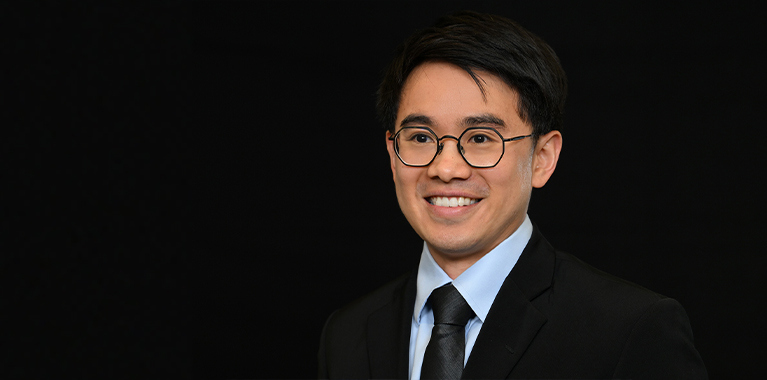
2022 ICSID Convention approved by Member States

On 21 March 2022, the member states of the World Bank's International Centre for Settlement of Investment Disputes ("ICSID") adopted amendments to the ICSID Convention's Institution Rules, Arbitration Rules and Additional Facility Rules (together, the "Rules"), as set out in Working Paper No. 5. The amended Rules will enter into force on, and apply to arbitrations commenced on or after, 1 July 2022.
In this alert, we set out the noteworthy changes to the various Rules and consider their impact on investor-State arbitrations.
Innovations in efficiency
In order to improve cost and time efficiencies in investor-State arbitrations, the 2022 ICSID Convention introduces the following key innovative changes:
- Electronic filing: Pursuant to Rule 4 of the 2022 Institution Rules and Rule 4 of the Arbitration Rules, the default position is for documents to be filed electronically, unless the Secretary-General or Tribunal (as the case may be) directs otherwise. It is presently unclear if this electronic filing can be completed simply by sending the documents by email or if a special e-filing platform will be created. While simple, the costs saving consequences of this amendment cannot be understated given that hard copy bundles produced in the context of investor-State arbitrations can run into thousands of pages.
- Mandatory case management conference: While the 2006 Arbitration Rules permitted pre-hearing conferences to be held at the request of the parties, Rule 31 of the 2022 Arbitration Rules requires the Tribunal to convene at least one case management conference after the first session. Rule 31 makes clear that this requirement is "with a view of conducting an expeditious and cost-effective proceeding", achieving this by allowing the parties and the Tribunal to identify uncontested facts, clarify or narrow issues in dispute, or address any other procedural or substantive issues during this case management conference.
- General timeline changes: In general, the 2022 Arbitration Rules set out stricter timeframes for various steps to be taken in the proceedings. For example, while the 2006 Arbitration Rules permits the Tribunal up to 180 days to render the award, Rule 58 of the 2022 Arbitration Rules require the Tribunal to render the award as soon as possible and in any event within specified timeframes.
- Bifurcation: While a request for bifurcation was impliedly permitted under the 2006 Arbitration Rules, Rule 42 of the 2022 Arbitration Rules expressly permits such requests, in line with similar developments in international commercial arbitration. Rule 42 also sets out the factors to be considered by the Tribunal in relation to requests for bifurcation, including whether the request will "materially reduce time and cost of the proceeding". It is anticipated that the express power to bifurcate the proceedings will save significant time and costs, especially if the Tribunal's jurisdiction is in dispute.
More notably, the 2022 Arbitration Rules introduce a new expedited arbitration procedure, in line with similar developments in commercial arbitrations. Main features of the procedure include: (i) relatively short, fixed deadlines; and (ii) limited length of pleadings in respect of each stage of the proceedings, as set out in Rule 81 of the 2022 Arbitration Rules. The Tribunal and parties can generally only deviate from the stipulated timelines by 30 days. However, it remains to be seen how much time and costs this can save, as the expedited arbitration procedure can only be adopted if all parties agree to its use (Rule 75 of the 2022 Arbitration Rules).
Push for transparency
As the table in the footnote indicates, there has been a significant rise in the use of third-party funding in investor-State arbitration over the past decade.1 These developments have been followed with great scepticism from various States.2 After significant consultation with its users, ICSID will require a party to file a notice disclosing the name and address of "any non-party from which the party, directly or indirectly, has received funds for the pursuit or defense of the proceeding through a donation or grant, or in return for remuneration dependent on the outcome of the proceeding" under Rule 14 of the 2022 Arbitration Rules. It is noted that this is an ongoing obligation, such that it applies even if third-party funding is not secured before the Request for Arbitration is filed. Notably, ICSID has resisted calls for the disclosure of the terms of the funding, as it considers this to be irrelevant to the main goal of Rule 14, being to "avoid conflicts of interest between arbitrators and third-party funders".3
On another note, the 2022 Arbitration Rules also attempt to provide greater transparency by stipulating factors to be considered by the Tribunal in regards to common interlocutory applications. For example, Rule 37 of the 2022 Arbitration Rules sets out the criteria to be applied by the Tribunal in deciding disputes concerning document production. Crucially, Rule 53 expressly deals with security for costs, one of the most common interim applications in investor-State arbitrations following the rise of third-party funding. In addition to setting out the criteria to be taken into account by the Tribunal when deciding whether to grant security for costs, Rule 53 the 2022 Arbitration Rules also clarifies the process involved in such applications. It is envisaged that these changes will foster more certainty, but it is unclear to what extent this will be achieved given that one of the criteria to be considered by the Tribunal when determining whether to order a party to provide security for costs is "all relevant circumstances", which is considerably broad.
Pursuant to Rule 2 of the 2022 Institution Rules, the Request for Arbitration must include "a description of the investment and of its ownership and control". This information was not previously required when submitting the Request and was likely introduced given the increasingly complicated and sometimes opaque company structures which own the investments. It is expected that providing this information at an early stage will allow the Secretary-General to form an initial view as to whether the requirements of the ICSID Centre's jurisdiction under Article 25 of the ICSID Convention are satisfied, thereby avoiding wasted costs if it later transpires that the requirements are not satisfied. Practically, the investor claimant will need to disclose the information at an earlier stage but this is unlikely to be burdensome, as the due diligence conducted in respect of the holding structure should already have been completed by the time the investor claimant has assessed whether to bring a claim under the ICSID Convention.
New chapter on costs
In line with the focus on costs efficiency and the general push for transparency, the 2022 Arbitration Rules contain a new chapter dealing with costs of the proceedings. Rule 51 of the 2022 Arbitration Rules requires the Tribunal to request that each party file their statement of costs and written submission on the allocation of costs. These submissions must then be considered by the Tribunal when allocating costs of the proceeding, in addition to the factors set out in Rule 52 of the 2022 Arbitration Rules (including the conduct of the parties and the reasonableness of the costs claimed). Similar to the English law position, Rule 52 also requires the Tribunal to award reasonable costs to the prevailing party, unless "special circumstances justify a different allocation of costs".
Widened scope of the Additional Facility Rules
Previously, the 2006 Additional Facility Rules could only be invoked if at least one of the States involved (either as respondent or as the investor's home State) was a contracting party of the ICSID Convention. This might explain why, since its creation in 1978, only 69 arbitrations have been registered under the ICSID Additional Facility Rules.4
However, this has been broadened under the 2022 Additional Facility Rules in two ways. First, the 2022 Additional Facility Rules can be invoked for any dispute involving a State or nationals of another State, regardless of whether any of the States involved are signatories of the ICSID Convention. Second, disputes involving regional economic integration organisations (such as the European Union or the Association of Southeast Asian Nations) now have recourse to the 2022 Additional Facility Rules.
Despite the broadened scope of the 2022 Additional Facility Rules, it remains to be seen if more investor-State disputes will be resolved under the ICSID Additional Facility Rules going forward.
How Stephenson Harwood can help
What is clear is that as of 1 July 2022, several changes will take place in the sphere of investor-State arbitrations. If you have any questions on the 2022 ICSID Convention or on investor-State disputes in general, please feel free to get in touch with our international arbitration team, which has widespread expertise in investor-State disputes. In particular, Rovine Chandrasekera, a partner in our London office and the global head of the firm's international arbitration practice, as well as Dr Fan Yang, a partner in our Hong Kong office, both have a wide range of experience in the field of investor-State arbitrations and mediations.
Many thanks to Isabelle Wenger, a trainee solicitor in the international arbitration team in the London office, and Monica Jia, a trainee solicitor in the Shanghai office, for their assistance on this article.
1 Ian McKenny, "Evolution of the Third-Party Funder", The Investment Treaty Arbitration Review (18 June 2021), available here: https://thelawreviews.co.uk/title/the-investment-treaty-arbitration-review/evolution-of-the-third-party-funder.
Time | Number of funders | Available investment (US$) | Expansion | Nature |
Pre-2005 | <10 | <30 million | Litigation | Ad hoc |
2005–2010 | <30 | >100 million | Commercial arbitration | Standardisation |
2010–2017 | <40 | >1 billion | Investment treaty arbitration | Risk pricing |
2017 onwards | >60 | >10 billion | Sector-specific | Merits-driven |
2 Many developing countries are sceptical of third-party funding, as they often appear as respondents in arguably frivolous cases funded by third-party funders. For example, the Federal Republic of Nigeria (and its agencies) have faced claims for significant sums where the claimants were supported by third-party funders. One of these cases involved IPCO (Nigeria) Ltd, where the arbitration award totalling approximately US$ 400 million was ultimately subject to challenge on the ground of fraud when IPCO sought to enforce the award in the English courts. Similarly, the approximately US$ 9.5 billion arbitration award, which Process & Industrial Developments Limited is seeking to enforce against Nigeria, is currently subject to challenge also on the ground of fraud.
3 ICSID, Proposals for Amendment of the ICSID Rules – Working Paper #2 (March 2019), at pages 121 to 122, paras 128 and 139, available here: https://icsid.worldbank.org/sites/default/files/amendments/Vol_1.pdf.
4 ICISD, The ICSID Caseload Statistics – Issue 2022-1 (7 February 2022), at page 9, available here: https://icsid.worldbank.org/sites/default/files/documents/The_ICSID_Caseload_Statistics.1_Edition_ENG.pdf.



